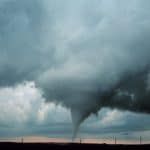Creating an integrated U.S. national security policy
By Gordon Adams | July 18, 2007
By asking what if, U.S. policy makers and advisers might find the solutions to restoring the country’s credibility abroad.
Globally, U.S. national security policy is failing. Disaster looms in Iraq, instability rules in
Afghanistan, Pakistan, Gaza, the West Bank, and Lebanon, Turkey is threatening to invade Kurdistan,
and the confrontation with Iran could become ugly. With campaign season heating up, Washington is
consumed with a steady stream of conferences about what to do. The suggestions for a turnaround are
marginal, even fantastical–support Siniora in Lebanon, recognize the Fatah government and let
Hamas fester in Gaza, eliminate the poppy fields in Afghanistan, hang on to President Pervez
Musharraf in Pakistan, push for the “surge” in Iraq. But all of this is just fiddling at the
margins.
U.S. national security is in deep trouble, and our national security institutions–the ways in
which we create policies and budgets to support our objectives and deal with international crises
are failing. And it’s unclear whether we can recover policy and process in time to prevent the
implosion of U.S. credibility abroad.
Looking backward is criticized by some, but a look at the “what ifs” might point the way to a
different future. What if we had used an integrated approach to our statecraft in the Middle East
and Persian Gulf back when there was still time?
Start with diplomacy. What if we had used the multilateral institution at hand (the U.N.
Security Council) to conduct diplomacy with Baghdad, while deploying force at the edge of Iraq?
What if we had initiated bilateral negotiations with Iran–or joined the multilateral talks–and
put all issues (nuclear capabilities, ending sanctions, terrorism, Iraq) on the table? What if our
diplomats had crisscrossed the Middle East in pursuit of another round of Israeli-Palestinian
negotiations, continuing the discussion without taking sides? What if we had trained and deployed
more diplomats who understood both Arabic and the region? What if we had trained mid-career
diplomats in economic reconstruction and program management?
Then continue with foreign assistance. What if we had developed a political and economic
reconstruction plan for Iraq before overthrowing Saddam Hussein? What if we had deployed a team to
Baghdad with the expertise to help reconstruct Iraqi ministries, provide security, and restore
electrical power? Better still, what if we had deployed specialized teams for the major provincial
locations in Iraq? What if after our experience in Afghanistan, we had assembled a field-tested
capability to implement a plan jointly with our allies? What if we had budgeted the funds for
reconstruction in Iraq and Afghanistan and requested them from Congress from the get-go?
What if together with our European allies we had an adequately funded program in place to
support civil society in the Middle East? What if we had begun making assistance available to
support the public school system in Pakistan (and other countries) years ago, providing an
alternative to the madrasas? What if we had had a significant, multilateral assistance program from
the start to support Lebanon? What if our Middle East assistance programs had been as large and as
detailed as the investments we’ve made since 2002 in combating HIV/AIDS in Africa or in encouraging
sound governments and economic policies through the Millennium Challenge Corporation?
This brings us to public diplomacy. What if we had provided funds or stimulated private funds to
encourage exchange and dialogue among the world’s religions, especially between Christians and
Muslims? What if we had encouraged our European allies to support such a program?
And don’t forget about intelligence. What if we had trained an adequate supply of Arabic
speakers to become intelligence analysts 15 years ago? What if we had moved faster to redeploy
intelligence personnel to focus on terrorism and identify conflicts in regions other than Europe
and Eurasia?
Then there’s homeland security. What if we had broken the communication barriers between the
FBI, the intelligence community, and the State Department, developing an integrated database of
suspects, threats, and applications to enter the United States?
Of course, there’s also the military. What if we had trained the military for security and
stabilization duty and assigned them that mission when they invaded Iraq? What if we had trained
and deployed Arabic speakers and translators (with regional and country knowledge) in advance of
their deployment? What if we had an international police and gendarme training program in place for
a decade before the war?
But all these tools are strongest when they’re integrated. What if we had created an interagency
task force for post-combat Iraq stabilization and reconstruction and engaged in a six-month (or
longer) process of developing a plan? What if we had given the National Security Council (NSC) the
task of coordinating the development and implementation of that plan, regularly monitoring the
results? What if we had a systematic NSC/Office of Management and Budget-based capability for
overseeing post-conflict or weak state policies, with agencies adequately funded to execute such
missions? What if State had the capability to engage in long-term strategic and budgetary planning
so that all of our diplomatic and foreign assistance tools were integrated and focused on long-term
objectives in the Middle East and Persian Gulf region?
There is no guarantee that such an integrated plan and toolkit would have rendered combat
unnecessary in Iraq or ensured that our post-combat involvement in Iraq and Afghanistan would have
been a success. Nor would all of these actions and innovations be to everyone’s liking, especially
those who felt the Iraq War was unwise and unnecessary. But there’s a chance some of them might
have worked, which would have obviously changed history.
All of these options have been on the table for the last 15 years. What seems clear to me is
that by not anticipating and planning for the need, the United States is on the brink of a major
strategic disaster. As we look to the future, the question now is whether any of these ideas can
help prevent this disaster and recapture U.S. credibility and leadership abroad.
Together, we make the world safer.
The Bulletin elevates expert voices above the noise. But as an independent nonprofit organization, our operations depend on the support of readers like you. Help us continue to deliver quality journalism that holds leaders accountable. Your support of our work at any level is important. In return, we promise our coverage will be understandable, influential, vigilant, solution-oriented, and fair-minded. Together we can make a difference.
Topics: Columnists














